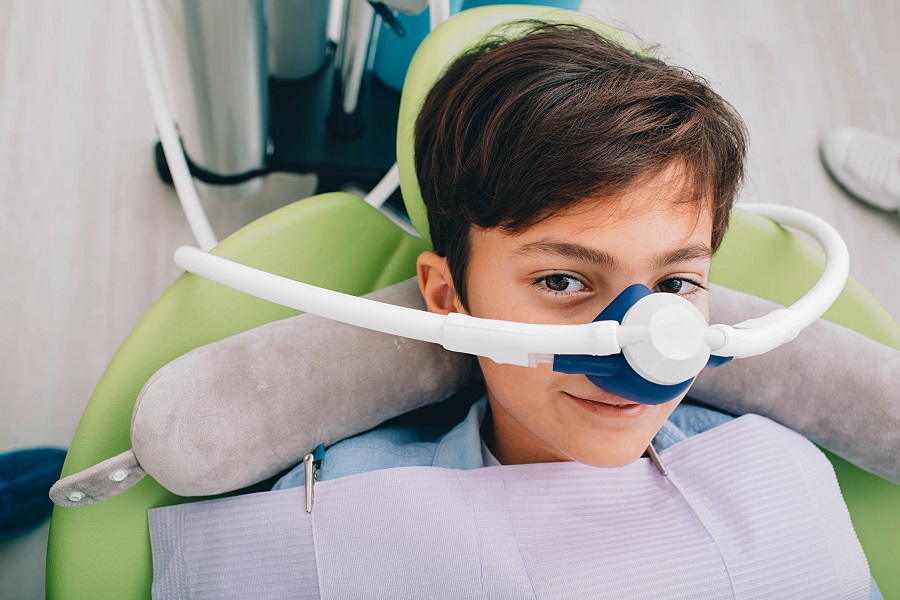Laughing gas, or nitrous oxide, is a type of sedation dentistry. It induces a state of relaxation, but you’ll remain awake the entire time. Laughing gas is one of the safest forms of sedation. It’s sometimes called “laughing gas” because you’ll feel euphoric and giggly while under its influence. Laughing gas eases dental anxiety, making your visit more pleasant. However, laughing gas alone may not be sufficient to help you stay still.
Laughing gas
Inhaling nitrous oxide provides a feeling of euphoria or “laughing” gas. However, the feeling of happiness is not caused by the gas itself—it’s actually caused by the body’s response to a lack of oxygen. The airways relax and dilate in response to decreased oxygen levels, which blocks pain signals and decreases anxiety. Nitrous oxide has a low boiling point, which means it evaporates quickly—you don’t leave the office feeling groggy after using laughing gas. In fact, you’ll probably feel refreshed after your procedure! Nitrous oxide is also one of the safest sedatives on the market today. Patients report very few side effects if any at all. Plus, dentists can closely control the amount of nitrous you receive during your treatment. If you are nervous at the thought of receiving laughing gas, your dentist can also offer alternative sedation options, like oral medications or an IV sedative. Talk to your dentist to find out what works best for you.
Who can get laughing gas?
Nitrous oxide, commonly known as laughing gas or happy air, is a colorless and odorless dental sedative that is often used to help calm patients who are nervous about their upcoming dental treatments. It can also help relieve a patient’s pain during certain procedures. Laughing gas is administered through a small mask that fits over the patient’s nose, allowing them to breathe in the medication whenever they feel anxious during treatment. The effects of nitrous oxide wear off very quickly – patients begin to experience its effects within just a few minutes of breathing it in and can return to normal within minutes once the mask is removed and the oxygen flow is resumed. Patients who get laughing gas often say that it is relaxing and allows them to feel more at ease during their procedure. However, some patients may be allergic to laughing gas and should not receive it. Those who suffer from asthma or other respiratory issues should also avoid laughing gas, as it can make these symptoms worse.
More Blog Posts
Save time by completing your new patient forms and sending them to us online or bring them with you to your first visit.
- MON - THU8:00 am - 5:00 pm
- FRI - SUNClosed








